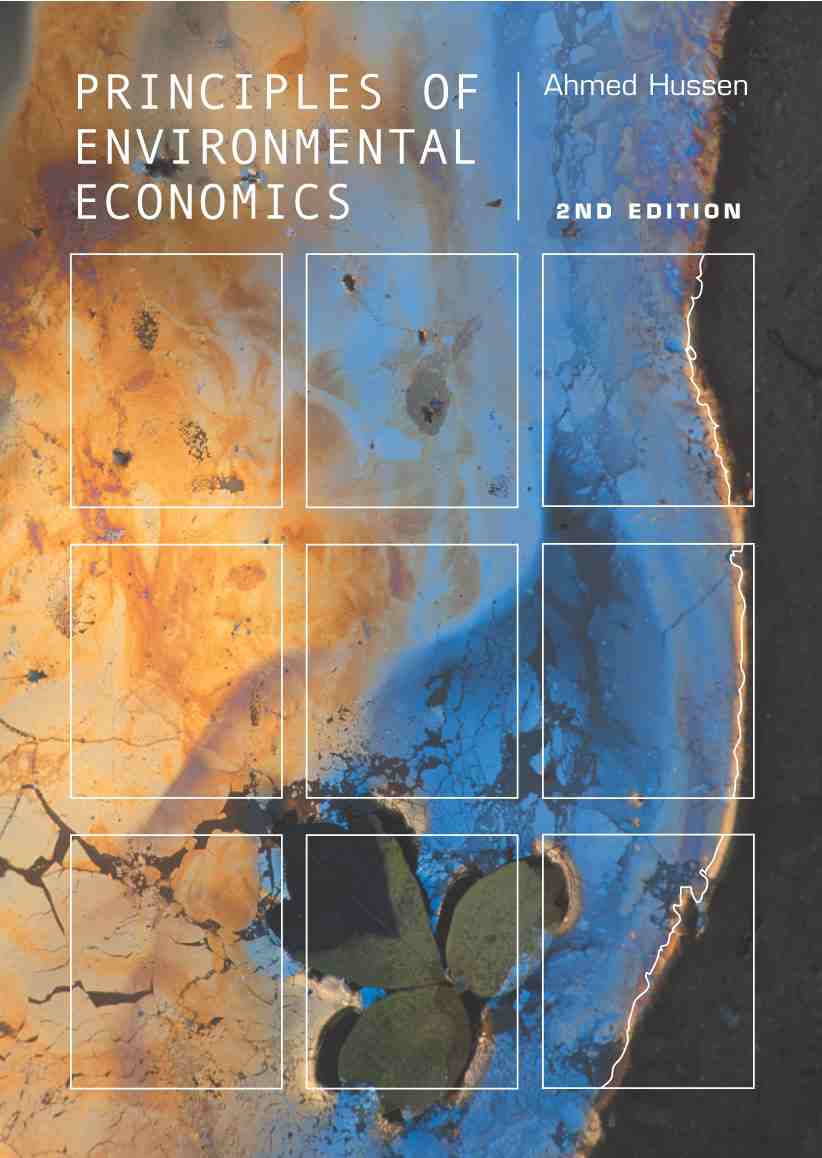Resume
Research and Writing
Contact Information
Home
Courses
Principles Of Environmental Economics 2nd
Edition,
Now Available!
 |
|
Research And Writing
Principles of Environmental
and Resource Economics:
Economics, Ecology and Public Policy
Routldege publishing, 2000.
First Edition, Available Now
Second Edition,
Available Now
Order
From Amazon.com
Order
From Amazon.com
Order
From Half.com
Order
From Half.com
Order
Paperback From Routledge.com
Order Paperback From Routledge.com
Order
Hardbound From Routledge.com
Order
Hardbound From Routledge.com
Praise
"This is a well-researched and comprehensive text that offers an
alternative and refreshing perspective to environmental issues." -
Lynton J. Bussell, University of Teesside
"This is a logically organised, well written text. Its distinguishing
element is its explicit consideration of ecology, ecological economics,
and sustainable development." - Douglas E. Booth, Marquette University
"A useful textbook that provides comprehensive coverage of
environmental and natural resource issues and policy considerations in
a clear and concise manner." - Aslib Book Guide
Author's Comment:
I wrote this textbook for two compelling reasons. First, I
wanted to write an introductory textbook in environmental and resource
economics that truly attempts to integrate economics and ecology.
Second, I wanted this textbook to be student friendlyóeasily
accessible to undergraduate students. I have taught
environmental and resource economics to undergraduate students for the
past two decades. I have yet to see a textbook that makes a
concerted effort to integrate economics and ecology in a comprehensive
and meaningful way. In most standard textbooks, ecological
concepts, to the extent they are included, are addressed on an ad hoc
basis. It is this neglect to the disciplinary ties between economics
and ecology on the existing textbooks available in the market that
eventually prompted me to write my own book.
Having said this, I claim that the distinguishing features of my
textbook are the following:
1. The book is accessible to students with a course in microeconomics
at an introductory level. The book devotes two "optional"
chapters that are basically intended for reviewing basic microeconomics
concepts and introducing students to economic concepts that are
specially relevant to environmental and resources economics.
2. The textbook does not require a prior knowledge in ecology. A
chapter is devoted to this specific subject. This chapter is
written with one modest objective in mindóto offer non-science
students a good understanding of the basic principles of the biological
and physical sciences that govern the natural world.
3. To catch studentsí imagination and attention, as well as to
reinforce understandings of basic theoretical principles, case studies
and "exhibits" are incorporated into most of the chapters.
4. The textbook offers an in depth and systematic analysis of the
"preanalytic"
conceptions of the "anthropocentric" versus the "biocentric" views of
environmental and natural resourcesóan important subject matter
for any effort to reconcile the differences between these two
"worldviews" of natural resources.
5. The textbook is quite original in its effort to explicitly
incorporate the recent contributions of ecological economics. It
contains four chapters that exclusively deal with biophysical limits
and the necessity for sustainable development. In so doing, this
textbook is, I believe, the first to explicitly confront the issue of
"scale" as an integral part (not to be treated in an appendix or as a
caveat to a chapter) of a textbook in environmental and resource
economics. Scale refers here to the relative size between
human economy and the natural world.
6. The textbook offers rigorous and adequate treatments to all the
topics normally included in standard text on "environmental and
resource economics" with one important difference. This
difference stems from conscious efforts made to interject ecological
perspectives relevant to the main issues addressed in most of the
chapters that are the predominantly neoclassical in their
approaches. These efforts are not made casually either.
7. This textbook is clearly interdisciplinary in its focus, and this is
done without compromising on the quality and relevance of the economic
contents of the book.
8. To sum up, this textbook offers a comprehensive and balanced
treatment of environmental and resource issues. Furthermore, the
materials in the text are presented at a level that undergraduate
students, from various disciplines and with little background in
economics, can understand and appreciate.
*To backup some of the claims that I have made up, here are two
comments from reviewers of my book with whom I have no personal
acquaintance:
"This is a well researched and comprehensive text that offers an
alternative and refreshing perspective to environmental issues."
(Lynton J. Bussell, University of Teesside, UK)
"This is a logically organized, well written text. Its
distinguishing element is its explicit consideration of ecology,
ecological economics, and sustainable development." (Douglas E.
Booth, Marquette University, Wisconsin, USA)
*In addition, the following are two representative comments from my
students who have used the textbook during the Winter quarter that just
ended:
"The book is very good. I think I will probably keep it for a
reference text."
"Text is very good. Clear, easy to understand, very organized and
laid out in a clear and organized fashion."
"Liked the text. Cheap, easy to read, great graphs and case
studies."
"Book is good. I liked the case studies and real world
examples. Would be more helpful sometimes if the graphs were on
the same page as the text that describes them."
"Text was awesome. Some definitions are hard to locate. May
be the text should include glossary of terms in bold for 2nd edition."
"Book went along well with lectures. Graphs were helpful and
clearly explained. It would be helpful if they could be in color
in the book."
"The book was very good. It was easy to read. The style was
not complicated, which helped because some of the concepts were.
It was well structured and organized. Actually, one of the best
textbooks I have had to read."
|
|

